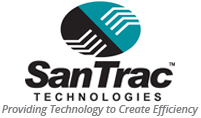One of the biggest complaints we hear from computer users is that their PC runs as slow as continental drift. If your computer is a couple of years old and you don’t have the money to invest in a new one, these 5 tricks will help speed up its performance.
- Free Up Disk Space. If you are running Windows 7 or Windows XP, the tool is called “Disk Cleanup”. This utility finds files taking up space on your hard drive that you can safely delete to free up space and improve performance.
- Temporary Internet files
- Files in the recycle bin
- Microsoft Active X controls and Java applets that were downloaded
- Windows temporary files
- Optional Windows components that you don’t use
- Programs you no longer use
- Click Start > All Programs > Accessories > System Tools > Disk Cleanup.
- Scroll through the dialog box that pops up and select the files you want to delete or compress.
- When prompted to confirm that you want to perform those actions chose “yes”.
- Defragment your drive. When Windows stores a document, it starts to save the document in the first area of free space on your hard drive. When it runs out of room in this initial space, it fragments the file and stores the rest of it on the next space available, and so on, until the entire document is stored. When you try to open that file again, your computer has to find all of the fragments and piece them together before it will display the document. This takes longer and results in slower performance.
- Clean up the spyware on your machine. Spyware is Internet jargon for hidden programs advertisers install on your PC without your permission to “spy” on you, gather information, and report this information about you and your online activities to some outside person.
- Super-charge your Internet Connection. If you are still using dial-up access, you would be blown away at the speed of broadband.
- Add memory. You could also upgrade the motherboard, hard drive, chip, and video card, but then you are getting into more money. If your machine is that old, you would be better off purchasing a new computer. But before you do that, try these 5 tips and see if that won’t get you a little more life out of your computer.
Some of the files it will search for are:
In most cases, temporary Internet files are the biggest disk space bandits because your browser caches (stores) each page you visit for faster access the next time you go to that site. These files are not necessary and can safely be deleted.
How to use Disk Clean Up:
The Disk Defragmenter utility consolidates fragmented files and folders on your computer's hard disk so that each file is stored on a single, adjacent space on the hard drive. This enables your system to find and access to files and folders much faster. Disk Defragmenter also consolidates your hard drive’s free space making it less likely that new files will be fragmented.
How to defragment your hard drive:
Click Start > All Programs > Accessories > System Tools > Disk Defragmenter.
Spyware works in the background sucking up system resources and considerably slowing down your PC’s performance. But that’s not the worst of it. In addition to slowing down your computer, it can be responsible for delivering a boatload of spam, altering your web browser, and serving up a bounty of pop up ads. In some of the more extreme cases, spyware can also steal your identify, passwords, e-mail address book, and even use your PC for illegal activities.
Broadband simply means that the “pipe” delivering the data to and from the Internet is bigger, which translates to a much faster experience. People are often amazed at the difference and wonder how they ever got along without it.
The primary broadband methods are DSL, which is delivered over telephone lines, and cable, which is delivered via television signals. DSL is 8 to 30 times faster than dial-up and cable can be as much as 100 times faster. If you use the Internet and e-mail frequently, this is money well-spent.


